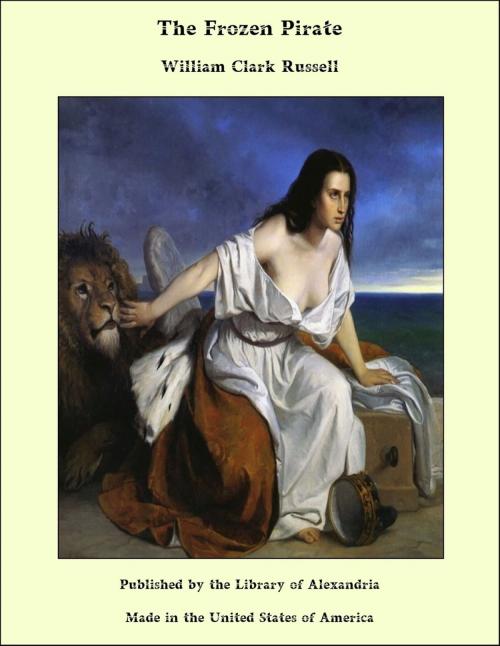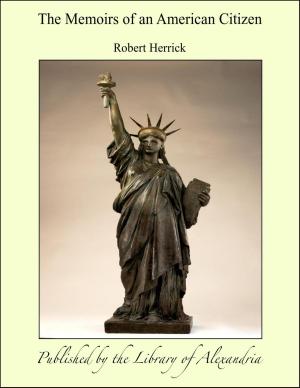| Author: | William Clark Russell | ISBN: | 9781465604262 |
| Publisher: | Library of Alexandria | Publication: | March 8, 2015 |
| Imprint: | Language: | English |
| Author: | William Clark Russell |
| ISBN: | 9781465604262 |
| Publisher: | Library of Alexandria |
| Publication: | March 8, 2015 |
| Imprint: | |
| Language: | English |
The Laughing Mary was a light ship, as sailors term a vessel that stands high upon the water, having discharged her cargo at Callao, from which port we were proceeding in ballast to Cape Town, South Africa, there to call for orders. Our run to within a few parallels of the latitude of the Horn had been extremely pleasant; the proverbial mildness of the Pacific Ocean was in the mellow sweetness of the wind and in the gentle undulations of the silver-laced swell; but scarce had we passed the height of forty-nine degrees when the weather grew sullen and dark, a heavy bank of clouds of a livid hue rose in the north-east, and the wind came and went in small guns, the gusts venting themselves in dreary moans, insomuch that our oldest hands confessed they had never heard blasts more portentous. The gale came on with some lightning and several claps of thunder and heavy rain. Though it was but two o'clock in the afternoon, the air was so dusky that the men had to feel for the ropes; and when the first of the tempest stormed down upon us the appearance of the sea was uncommonly terrible, being swept and mangled into boiling froth in the north-east quarter, whilst all about us and in the south-west it lay in a sort of swollen huddle of shadows, glooming into the darkness of the sky without offering the smallest glimpse of the horizon. In a few minutes the hurricane struck us. We had bared the brig down to the close-reefed main-topsail; yet, though we were dead before the outfly, its first blow rent the fragment of sail as if it were formed of smoke, and in an instant it disappeared, flashing over the bows like a scattering of torn paper, leaving nothing but the bolt-ropes behind. The bursting of the topsail was like the explosion of a large cannon. In a breath the brig was smothered with froth torn up in huge clouds, and hurled over and ahead of her in vast quivering bodies that filled the wind with a dismal twilight of their own, in which nothing was visible but their terrific speeding. Through these slinging, soft, and singing masses of spume drove the rain in horizontal steel-like lines, which gleamed in the lightning stroke as though indeed they were barbed weapons of bright metal, darted by armies of invisible spirits raving out their war cries as they chased us.
The Laughing Mary was a light ship, as sailors term a vessel that stands high upon the water, having discharged her cargo at Callao, from which port we were proceeding in ballast to Cape Town, South Africa, there to call for orders. Our run to within a few parallels of the latitude of the Horn had been extremely pleasant; the proverbial mildness of the Pacific Ocean was in the mellow sweetness of the wind and in the gentle undulations of the silver-laced swell; but scarce had we passed the height of forty-nine degrees when the weather grew sullen and dark, a heavy bank of clouds of a livid hue rose in the north-east, and the wind came and went in small guns, the gusts venting themselves in dreary moans, insomuch that our oldest hands confessed they had never heard blasts more portentous. The gale came on with some lightning and several claps of thunder and heavy rain. Though it was but two o'clock in the afternoon, the air was so dusky that the men had to feel for the ropes; and when the first of the tempest stormed down upon us the appearance of the sea was uncommonly terrible, being swept and mangled into boiling froth in the north-east quarter, whilst all about us and in the south-west it lay in a sort of swollen huddle of shadows, glooming into the darkness of the sky without offering the smallest glimpse of the horizon. In a few minutes the hurricane struck us. We had bared the brig down to the close-reefed main-topsail; yet, though we were dead before the outfly, its first blow rent the fragment of sail as if it were formed of smoke, and in an instant it disappeared, flashing over the bows like a scattering of torn paper, leaving nothing but the bolt-ropes behind. The bursting of the topsail was like the explosion of a large cannon. In a breath the brig was smothered with froth torn up in huge clouds, and hurled over and ahead of her in vast quivering bodies that filled the wind with a dismal twilight of their own, in which nothing was visible but their terrific speeding. Through these slinging, soft, and singing masses of spume drove the rain in horizontal steel-like lines, which gleamed in the lightning stroke as though indeed they were barbed weapons of bright metal, darted by armies of invisible spirits raving out their war cries as they chased us.















